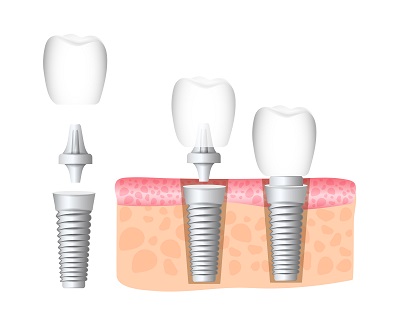
FAQs About Dental Implants
Many individuals often overlook the simple yet vital function of being able to bite and chew until they face the challenge due to missing teeth. A healthy smile is essential for these basic tasks. Dental implants offer a transformative solution for those grappling with tooth loss. Here are some common questions about dental implants to guide you in determining if they are the right choice for you:
1. Who Qualifies for Dental Implants?
Individuals aged 18-90 typically qualify for dental implants. However, those with significant bone loss may require a bone graft to enhance bone volume and provide a sturdy foundation for the implants.
2. What Constitutes a Dental Implant?
A dental implant involves the insertion of a titanium or ceramic screw into the jawbone. Over a period of three to six months, the bone fuses with the implant, creating a robust anchor. This allows for the secure attachment of a crown or bridge.
3. How Do Dental Implants Benefit Oral Health?
Missing teeth can trigger bone loss in the jaw, leading to changes in facial structure and appearance. Dental implants stimulate the jaw, preventing bone loss. Additionally, unlike bridges that rely on adjacent healthy teeth for support, implants preserve existing dental structures.
4. Are Dental Implants Costly?
While the initial cost of dental implants may be higher, they offer long-term cost-effectiveness. Unlike dentures, which often require replacement due to bone loss, implants boast a 95% success rate and can last a lifetime. Treatment costs vary based on individual needs, with insurance coverage potentially offsetting expenses.
5. Is Implant Placement Painful?
Implant placement is comparable in discomfort to routine dental procedures like cavity fillings or extractions. Dental offices often provide IV sedation to ensure patient comfort during the procedure. Following implant placement, a temporary crown or bridge is installed until healing is complete.
6. How Natural Do Dental Implants Look and Feel?
Dental implants offer a natural and aesthetically pleasing appearance, closely resembling natural teeth. While there may be a slight reduction in sensation due to the absence of tooth roots, implants provide strength and durability akin to natural teeth. Moreover, they impose no dietary restrictions.
Embarking on the journey to restore your smile with dental implants can address not only functional concerns but also enhance your overall oral health and confidence.
